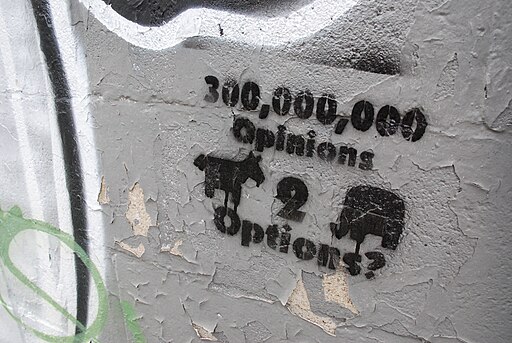After four days of acrimony and 15 ballots, Kevin McCarthy (R-CA) finally became Speaker of the House early on January 7. Yay! Congress is finally back in business! Gridlock ends! The republic is saved!
Well, not really. The whole sorry exercise was just another attempt to compete with professional wrestling for the attention of entertainment-seekers. Congress, unfortunately, was never OUT of business, except for exactly as long as, and precisely to the extent that, it CHOSE to be out of business, for the purpose of attracting attention to its own supposed importance.
How vital is the position of Speaker? What’s its role and function? What can or cannot happen while the office remains vacant?
The answer to all those questions is “whatever Congress decides.”
For nearly 200 years, the position of Speaker was referenced a grand total of once in the US Constitution, in Article I, Section 2: “The House of Representatives shall chuse their Speaker and other Officers.”
It wasn’t until 1967, when the 25th Amendment was ratified, that the Constitution ascribed any particular significance to the position at all, and that significance is fairly minor (he or she is one of the officials to be notified of presidential incapacity).
Apart from that single specific role, everything defaults to Article I, Section 5: “Each House may determine the Rules of its Proceedings.”
The only reason the House couldn’t swear in new members, consider and pass legislation, etc., until a Speaker was elected was that that’s how the House chooses to do things.
Nor was there any reason the House couldn’t have chosen to do things differently, even in the middle of the chaos.
The only conceivable — and exceedingly unlikely — material fallout from the position remaining vacant indefinitely would be if the president or vice-president had needed to let the Speaker know that the president was incapacitated, or if both the president AND the vice-president were incapacitated or killed and a Speaker was needed to fill the office of president. In which case the remaining anti-McCarthy holdouts in the Republican camp would have knuckled under in minutes rather than in days.
At any time in that four-day pageant, a majority of the House could have changed its rules to let it pick the Speaker by, say, drawing names from a hat. Or to proceed with the chamber’s other business and hold weekly votes to eventually fill the position. Or any sizable group of Democrats or Republicans could have changed their votes to elect McCarthy, or Hakeem Jeffries (D-NY), or for that matter you or me (the Speaker need not be a House member).
What finally broke the impasse? Two things:
First, once the thing really got going, Republicans weren’t going to let it stop on January 6, the anniversary of the 2021 Capitol riot.
Second, once they were past January 6, they weren’t going to delay further and risk letting Saturday’s NFL schedule steal their thunder.
Which should tell you all you need to know about the ratio of drama to substance. It was just another TV show, folks.
Thomas L. Knapp (Twitter: @thomaslknapp) is director and senior news analyst at the William Lloyd Garrison Center for Libertarian Advocacy Journalism (thegarrisoncenter.org). He lives and works in north central Florida.
PUBLICATION/CITATION HISTORY



